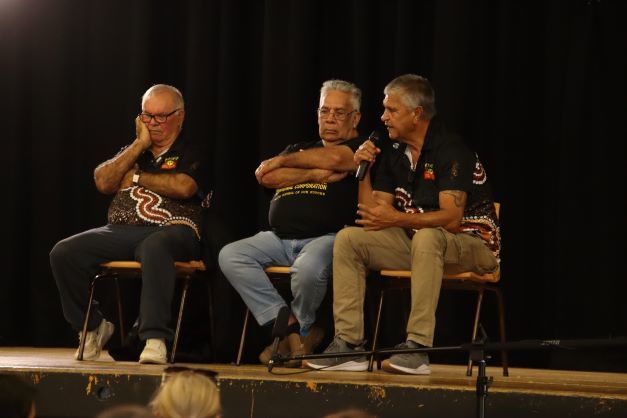National Sorry Day an ongoing journey to reconciliation
Laura Williams
26 May 2022, 8:20 AM
 Lightning Ridge Central School was one of many schools across the region who participated in National Sorry Day activities. (Supplied)
Lightning Ridge Central School was one of many schools across the region who participated in National Sorry Day activities. (Supplied)Today Thursday 26 May 2022, students, community members and local Indigenous voices gathered across the country, raising the flag in recognition of National Sorry Day, an opportunity to focus on healing and reconciliation in Australia.
In Walgett, North West Local Aboriginal Land Council Councillor Anne Dennis was one of many in the community to make a speech.
Ms Dennis said that she was sheltered from a lot of wrong-doing as a child, and the future generations continue to be, but it’s important the next generation can still have an opportunity to understand their culture’s history.
“My grandparents weren’t allowed to speak the language. They weren’t allowed to practise culture…our history is shared and we need to work together so history doesn’t repeat itself,” Ms Dennis said.
Since National Sorry Day started on May 26 twenty-five years ago, Ms Dennis said we’ve come a long way, but there are still obvious inequities throughout the community.
“Particularly in rural and remote areas, there aren’t many jobs in our community,” Ms Dennis said.
“When we look at people in Weilmoringle, it’s probably a 250 kilometre round trip just to access an IGA…and with the cost of fuel so high it’s getting extremely difficult,” she said.
When it comes to closing the gap, access to health and education seemingly still has room to move.
On a national scale, this National Sorry Day has brought a call to action to close ‘the gap within the gap’.

Some of the survivors of the Kinchela Boys Home have made a commitment to share their stories. Survivors Jame (Widdy) Welsh (Coonamble), Robert Young (Belmont, Sydney) and Willy Nixon (Gulargambone) talk about their experiences and reflections at Connecting to Country gathering in early May 2022.
The inquiry into the Kinchela Boys Home - an Aboriginal training home run by the government until 1970, forcibly removing them from their homes - that marked the beginning of National Sorry Day brought with it its own scars.
Kinchela Boys Home survivor Uncle Richard Campbell said that Stolen Generations Survivors are suffering more financially, socially and in areas of health and wellbeing.
“This disadvantage extends to our descendants who also consistently experience poorer health and social outcomes,” Uncle Richard said.
“We are the invisible gap that will be left behind,” he said.


